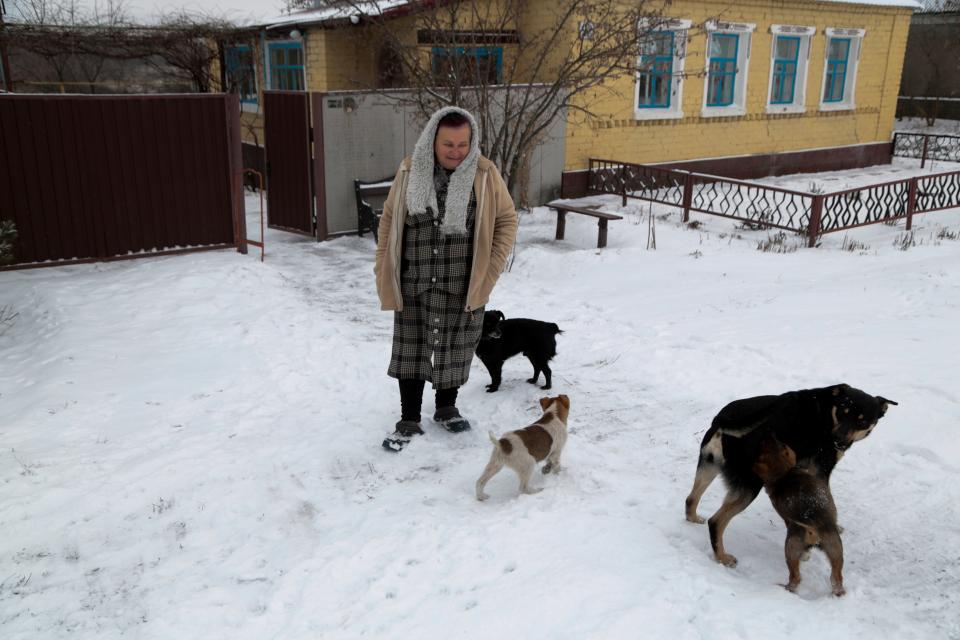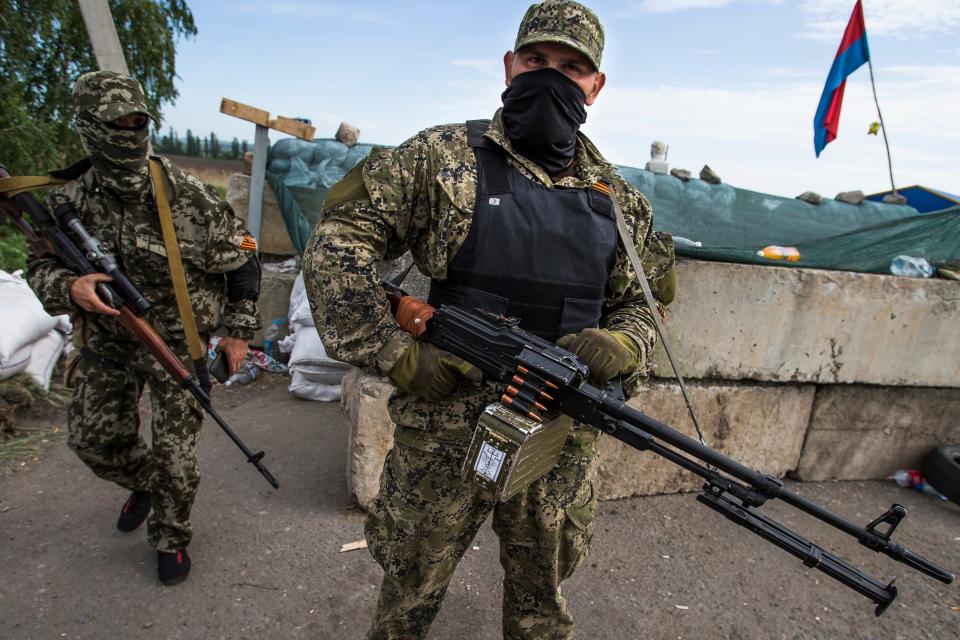'We've seen what war can do': Ukrainians on high alert over feared Russia invasion
KHARKIV, Ukraine – At a family restaurant in this city in eastern Ukraine, a few customers from a lunchtime crowd diligently worked on laptops. Others dug into their meals, seemingly oblivious to the 100,000 troops amassed by Moscow about 40 miles away on Russia's side of the border.
"We cannot imagine running for the third time. So we refuse to think of the worst-case scenario," said Gizo Latsusbaya, 31, owner of the restaurant, Batano Buba, which translates to "Father Buba."
Latsusbaya spoke to USA TODAY as he scanned news on his cellphone from behind a cash register in the corner of his restaurant. He explained how his family has twice fled war zones in lands once part of the Soviet Union. The first escape was in 1992, from a civil war in Georgia to St. Petersburg, Russia. In 1999, the family moved again, to what was then Luhansk, Ukraine, where his father is buried. When Luhansk in 2014 became a breakaway state established by pro-Russian separatists, they moved again.
"War is a terrible tragedy for our family. We cannot even visit my father’s grave," he said.
WHAT WE KNOW: US talks potential sanctions; Russia has 'profound concern' over NATO action

The Russian government insists it has no plans to invade Ukraine, despite intelligence reports from Kyiv, Washington and NATO allies indicating Moscow is encircling Ukraine's territory with troops, tanks and other military hardware and supply lines. Russian President Vladimir Putin has said virtually nothing in public about the escalating standoff between Kyiv and Moscow for the best part of a month.
In recent days, the Pentagon has put 8,500 troops on high alert as Russia's buildup of troops on Ukraine's border has intensified. NATO members, including Denmark, France and Spain, have committed to sending fighter jets and warships to eastern Europe to bolster the bloc's defenses in the region, and multiple Western nations including the U.S. and Canada have ordered families of diplomatic staff to leave Ukraine. Britain said it uncovered a plot to install a pro-Moscow leader in Ukraine, something Russia denies.
WHAT IS HAPPENING IN UKRAINE: Putin's buildup of troops sparks concern
'We are more ready now'
Few know what Putin's actual intentions are for Ukraine.
The two nations have been embroiled in a simmering conflict since 2014, when Russia illegally seized control of Ukraine's Crimea, on the Black Sea, and Russian-backed rebels held successful separatist uprisings in Donetsk and Luhansk. The conflict has killed an estimated 14,000 people. There have been on-and-off peace talks, but Putin balks at Ukraine's ambitions to join NATO and possibly even one day the European Union, thus moving further away politically and economically from the Russian sphere of influence.
Roman Dudin, head of Kharkiv's regional security services, told reporters in a news conference Monday that his officers "are ready for any emergency."
Dudin added, referring to an earlier failed attempt by Russian-backed separatists to overthrow Ukraine's local government in Kharkiv, that "we are more ready now than we have ever been ready over the last eight years."
Still, city officials in Kharkiv grew more concerned about the threat of a full-scale war with Russia after Ukrainian President Volodymyr Zelenskyy said in an interview last week that Kharkiv could fall prey to a full-blown Russian occupation.

Kharkiv is accustomed to war
On Monday, USA TODAY observed a group of university students who arrived for a day of training on how to manage volunteers with Kharkiv Station, a local humanitarian group that works with the homeless and displaced people. Members of that group shared memories of the bloodiest days in 2014 and 2015, when tensof thousands of people – soldiers and civilians – were killed or wounded in eastern Ukraine.
As the fighting went on, Kharkiv’s population of 1.4 million swelled by 200,000 after an influx of displaced people from neighboring Donetsk and Luhansk.
Alla Feshenko, the center’s coordinator, told USA TODAY how she observed one family from a village in the Donetsk region arrive in Kharkiv in a truck packed with their dead neighbors.
"We had to feed up to 600 people a day at the central railway station," Feshenko said.
Oleg Konotoptsev, a professor at Kharkiv Regional Institute of Public Administration who is also a Kharkiv Station volunteer, said he was not convinced Russia would invade Kharkiv or massacre its residents. A majority of Kharkiv residents speak Russian, and many have relatives in Russia.
But if a full-fledged war does break out, Konotoptsev said, many of Kharkiv Station's volunteers will "have to think only of our personal survival."
Psychologist Yulia Tkachenko, 39, and her family are not sticking around to find out.
They plan to soon leave Ukraine for Poland or Hungary.
"We’d rather move to a safe country," she said. "We have seen what the war can do."
This article originally appeared on USA TODAY: Ukrainians brace for possible war as they await Russia's next move

 Yahoo Movies
Yahoo Movies 
